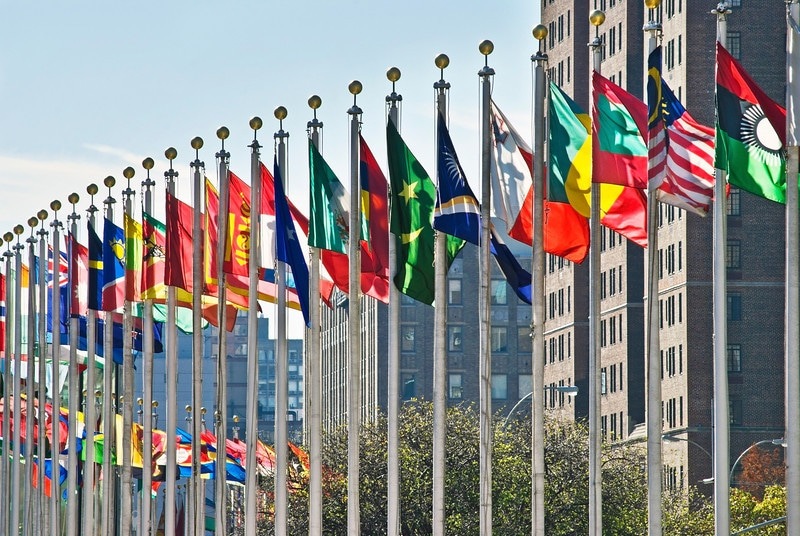

Syed Ali Zia Jaffery is a Research Associate at the Center for Security, Strategy and Policy Research at the University of Lahore.
01 Febuarary 2021
One of the principle objectives that dictate a state’s foreign policy is to harmonize and ensconce its interests with those of other actors in the international system. To effectively do that, it is important to clearly define and articulate one’s baskets of interests while embroiling in an arduous, yet necessary process of shaping the overall external context and the behaviours of the involved actors. As a sovereign state, Pakistan is no exception. If anything, given its strategically-important location and the fact that it is surrounded by a tough neighbourhood, the task for Islamabad is critical and harder. The challenges that the country’s foreign policy faced in 2020 were not diametrically different than the ones it grappled with in 2019. In 2021, three factors will percolate and present packages of hurdles and openings to Islamabad. One, a revanchist India, led by a leadership that is neither mollified by the status quo, nor believes in the perquisites of peaceful coexistence, has been a veritable source of worry for Pakistan. Two, the simmering conundrum in Afghanistan, despite advancements in the Afghan peace process, will result in concomitant troubles. Three, the ever-burgeoning ties with China will give Pakistan much-needed cushion going forward. Islamabad has to meet these challenges and pounce on a plethora of opportunities by keeping in mind its economic security and sovereignty, and its commitment to resolving conflicts, something that lies at the heart of strengthening both economic security and sovereignty. Given this backdrop, in 2021, Pakistan should focus on three things as far as its foreign policy is concerned.
One, Pakistan has to not only maintain but also up the ante against India. To its credit, Pakistan has taken upon itself to expose India and the threats it poses to regional stability. It is befitting that, led by Prime Minister Imran Khan, Pakistan has devised an all-of-government approach in this regard. With a view to resetting a tendentious narrative on terrorism, Pakistan released a dossier on India’s direct and brazen support to terrorism inside Pakistan. Islamabad has also deftly, without resorting to recklessness, fought the case for Kashmir robustly ever since India illegally annexed the even-otherwise occupied Kashmir. It is of importance for Pakistan to ramp up the pressure on India. Diplomacy at the United Nations should stress the fact that UN’s goals of poverty-eradication, disarmament, and climate change, to name a few, cannot be attained so as long regional stability is marred by the refusal and recalcitrance of a nuclear-armed country to resolve the Kashmir issue. With the penholders, including a Biden-led United States, Pakistan has to continue laying emphasis on the deleterious effects of mollycoddling India. Also, in 2021, Pakistan would be remiss if it fails to use social media and the wider cyberspace for strategic communications. At a time when India’s adeptness in using media as a weapon of war is out in the open, Pakistan cannot afford to come up with a weak response in the very domain. With law on its side, Pakistan has to beef up its lawfare against India’s violations of international law. All this has to be complemented by increasing military preparedness in a bid to show restraint, responsibility, and resolve.
Two, Pakistan has to continue playing down the middle with and in Afghanistan. Deriding many a myth, Pakistan has played a lead role in the Afghan peace process. Other than facilitating direct talks between Washington and the Afghan Taliban, Pakistan has engaged disparate Afghan factions with a view to helping them iron out their differences in the intra-Afghan dialogue. This has been duly supplemented by Pakistan’s push to increase trade, open and regulate borders, and give a softer touch to relations often disturbed by acrimony. Pakistan has to tread the same path in 2021. However, in its parleys with all stakeholders, including the new administration in Washington, Islamabad has to categorically draw redlines. To the United States, Pakistan has to elucidate the extent to which it has gone in turning a page in Afghanistan. Islamabad has to reiterate that, while it will continue doing all that it can for peace in Afghanistan, it must not be expected to do something that is within the remit of Afghans alone. Also, Pakistan has to shed light on India playing spoilsport in Afghanistan, especially in its engagements with the United States. This has to be done in earnest through direct, high-level contacts between officials from both countries. In this regard, it is essential that PM Khan and U.S. President Joe Biden establish a good working relationship with each other. That said, Pakistan must complete fencing the border with Afghanistan so as to stem the flow of terrorists and eliminate chances of the resurgence of terrorism emanating from safe havens in Afghanistan.
Three, Islamabad and Beijing should tighten their strategic embrace. Repudiating claims of rifts, both countries solidified their ties in 2020. A rejuvenated Free-Trade Agreement gave impetus to the trade volume, despite a raging pandemic. If there were any doubts about the future of the China-Pakistan Economic Corridor (CPEC), they were removed through a flurry of deals in 2020. As of this writing, CPEC has entered its second phase, with developmental work having sped up precipitously. Needless to say, Sino-Pak relations, anchored primarily in CPEC, should be seen as the country’s mainstay as far as economic security is concerned. While India presents a security threat to CPEC, US’ trepidations about CPEC are a nuisance that Pakistan needs to contend with. It is important for Islamabad to continually convey to Washington that, neither is Pakistan a party to a Sino-US showdown, nor should the US see it through a Chinese lens. Other than all this, China, with its influence and presence in Africa, could give Pakistan’s bid to enter into Africa a great fillip. Thus, Pakistan can dovetail its interests with those of China so as to establish a foothold in the all-important continent. At present, Pakistan, on its own, cannot make forays into Africa that can translate into substantive economic and strategic benefits.
To sum it up, Pakistan’s foreign policy will be challenged by events in its hood. While the country must expand its options and bring in much-needed dynamism in its policy orientation, it has to give special attention to its relations with India, Afghanistan, and China, which will also set the tone and impinge upon its equation with the United States in 2021 and the years to follow.
Disclaimer: The views expressed in the article are of the author and do not necessarily represent the institute’s policy.
